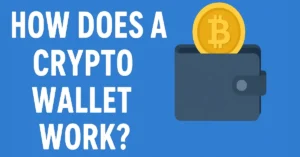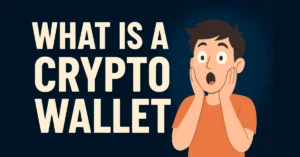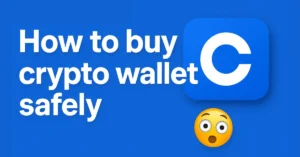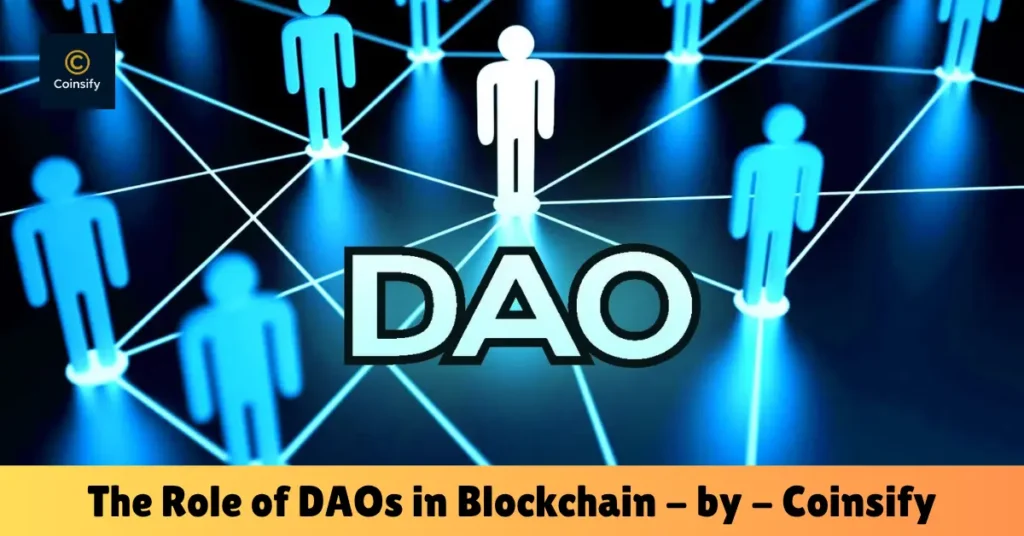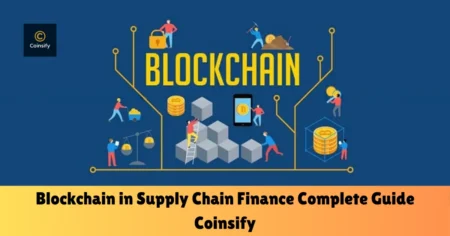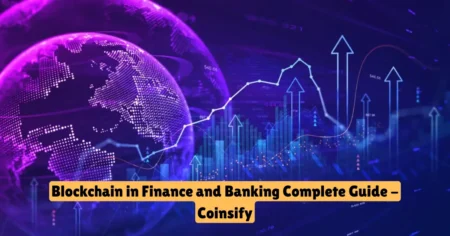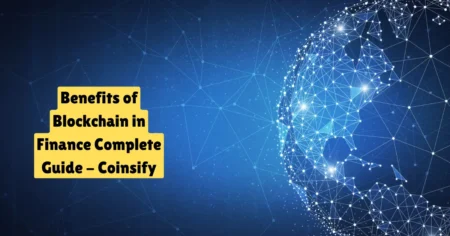The Role of DAOs in Blockchain
Introduction
Blockchain technology has sparked a wave of innovation across industries, transforming how people exchange value, share data, and build trust online. Beyond cryptocurrencies like Bitcoin and Ethereum, one of the most groundbreaking developments is the rise of Decentralized Autonomous Organizations (DAOs). These organizations operate without traditional leadership structures, using smart contracts and collective decision-making to manage operations. As the blockchain ecosystem evolves, DAOs are emerging as a key pillar in creating decentralized, transparent, and community-driven systems. This article explores what DAOs are, how they work, and the crucial role they play in shaping the future of blockchain.
What is a DAO?
A Decentralized Autonomous Organization (DAO) is a new type of organization that runs on blockchain technology without relying on a central authority or traditional management. Instead of being controlled by executives or a board of directors, a DAO is governed by smart contracts—self-executing code that automatically enforces rules and decisions.
In a DAO, decision-making power is distributed among its members, typically through a system of governance tokens. These tokens allow participants to vote on proposals, changes, or future actions, giving the community collective control over the organization.
Key characteristics of a DAO include:
- Decentralization: No single person or group holds full control.
- Autonomy: Smart contracts handle core operations automatically.
- Transparency: All actions, rules, and transactions are recorded on a public blockchain.
- Community Governance: Token holders propose and vote on decisions democratically.
DAOs represent a shift from centralized control to community-driven collaboration, enabling people from around the world to contribute to and manage a shared digital entity.
How DAOs Work

DAOs operate through a combination of blockchain technology, smart contracts, and community governance. Their structure eliminates the need for centralized leadership by using code and consensus to manage decisions and operations.
Here’s a breakdown of how they work:
Smart Contracts Form the Foundation
At the core of every DAO are smart contracts—self-executing programs built on blockchain networks like Ethereum. These contracts define the rules of the organization, such as how proposals are made, how votes are counted, and how funds are managed. Once deployed, these rules are transparent and cannot be changed without the community’s approval.
Governance Through Tokens
DAOs typically issue governance tokens to their members. Holding these tokens gives individuals the right to participate in decision-making processes. Token holders can:
- Submit proposals (policy changes, funding allocations).
- Vote on proposals made by others.
- Influence the future direction of the DAO based on collective input.
The weight of a member’s vote often depends on how many tokens they hold, though some DAOs implement one-vote-per-user systems to promote fairness.
Proposals and Voting
When a proposal is submitted, a voting period begins. Members cast their votes, and if the proposal receives enough support, the DAO automatically implements the decision. For example, it could trigger a smart contract to transfer funds, change a protocol setting, or launch a new project.
Autonomous Execution
Once a proposal is approved, the DAO’s smart contracts execute the decision automatically. This removes the need for manual intervention and ensures that outcomes follow pre-agreed rules without bias or delay.
On-Chain Transparency
All actions, from proposals to votes to fund transfers, are recorded on the blockchain. This makes the entire process transparent and auditable, helping to build trust among members and observers.
In short, DAOs combine code-based logic with democratic governance, allowing global communities to collaborate and manage shared goals efficiently and fairly.
Key Benefits of DAOs
Decentralized Autonomous Organizations (DAOs) offer several advantages that make them an attractive model for community-driven projects, financial systems, and decentralized governance. By removing centralized control and introducing transparent, automated processes, DAOs bring a new level of efficiency and fairness to how organizations operate.
Decentralization
- DAOs eliminate the need for a central authority. Instead, power is distributed across the community, allowing members to participate equally in decision-making. This makes DAOs more democratic and less vulnerable to corruption or mismanagement.
Trustless Collaboration
- Members of a DAO do not need to trust one another personally. The rules of interaction and governance are embedded in smart contracts, which execute automatically. This reduces the risk of human error, fraud, or manipulation.
Transparency
- Every decision, vote, and transaction within a DAO is recorded on the blockchain. This public ledger ensures full transparency, making it easy to verify how decisions are made and how resources are used.
Global Participation
- DAOs are accessible to anyone with an internet connection and a digital wallet. There are no geographical barriers, allowing people from around the world to contribute, invest, or govern together.
Efficient and Automated Operations
- Smart contracts automate routine processes, reducing the need for manual oversight and increasing operational efficiency. Once a proposal is approved, it can be executed instantly without waiting for human approval or administrative delays.
Aligned Incentives
- Many DAOs use token-based rewards to encourage participation and contribution. Members are often more engaged because they have a direct financial or reputational stake in the organization’s success.
Real-World Examples of DAOs
DAOs are no longer just theoretical concepts—they are actively shaping some of the most influential projects in the blockchain space. Here are a few real-world examples that demonstrate how DAOs function and the diverse roles they play in decentralized ecosystems:
MakerDAO
- MakerDAO is one of the most established DAOs and is responsible for managing the DAI stablecoin, a cryptocurrency designed to maintain a stable value against the US dollar. Token holders use the MKR governance token to vote on proposals such as interest rates, risk parameters, and upgrades to the protocol. MakerDAO is a prime example of how DAOs can govern financial systems without centralized control.
Uniswap DAO
- Uniswap is a leading decentralized exchange (DEX) that allows users to trade cryptocurrencies without intermediaries. Its DAO governs the protocol’s development and treasury. UNI token holders can vote on upgrades, fee structures, and other decisions affecting the platform. This enables the community to steer the evolution of one of the most widely used DeFi applications.
Gitcoin DAO
- Gitcoin DAO supports the open-source software ecosystem by funding developers and projects through community-driven grant programs. Members vote on which projects should receive funding, helping to sustain public goods that might otherwise go unsupported. Gitcoin showcases how DAOs can coordinate resources for social impact and technology development.
Aave DAO
- Aave is a decentralized lending platform where users can borrow and lend cryptocurrencies. Its DAO manages the protocol’s parameters, risk policies, and treasury. AAVE token holders propose and vote on changes, making it a key player in decentralized finance (DeFi) governance.
Aragon
- Aragon provides tools for others to create and manage their DAOs. It is also governed by a DAO itself. The project aims to make decentralized governance accessible by offering customizable templates for DAOs, legal support frameworks, and more.
Challenges DAOs Face
While DAOs present a revolutionary approach to governance and collaboration, they are still evolving and face several practical and technical challenges. Understanding these issues is essential for evaluating the long-term viability and adoption of DAOs in real-world scenarios.
Legal Uncertainty
- One of the biggest hurdles for DAOs is the lack of legal recognition in many jurisdictions. Traditional laws are designed for centralized entities with clear leadership structures, which makes it difficult to classify or regulate DAOs. This legal grey area can create problems related to liability, taxation, and compliance.
Smart Contract Vulnerabilities
- Smart contracts are the backbone of a DAO, but they are not immune to bugs or exploitation. If a contract has a flaw, it could lead to unintended outcomes, including financial losses or governance failures. Several high-profile DAO attacks in the past have highlighted the risks of relying entirely on code.
Low Voter Participation
- Many DAOs struggle with governance apathy, where only a small percentage of token holders participate in voting. This can lead to decisions being made by a vocal minority, which undermines the democratic ideals of a DAO.
Coordination Complexity
- In large DAOs with thousands of members, reaching consensus can be time-consuming and inefficient. Without strong leadership or clear processes, decision-making can become fragmented, slow, or dominated by a few influential members.
Security and Governance Attacks
- DAOs are vulnerable to governance attacks, where someone accumulates a large number of tokens and manipulates votes for personal gain. Without safeguards like quorum requirements or time delays, DAOs can be hijacked or drained of funds.
Scalability Issues
- As DAOs grow, maintaining engagement, transparency, and performance becomes harder. Scaling up governance, onboarding new members, and coordinating across global time zones and cultures is a significant challenge.
Future of DAOs in the Blockchain Ecosystem

As blockchain technology matures, DAOs are positioned to become one of its most transformative elements. Their ability to enable decentralized governance, global collaboration, and transparent decision-making has already sparked significant interest, and the momentum is only growing.
Integration with Web3 and DeFi
- DAOs are playing a central role in the development of Web3, a new vision for the internet that emphasizes decentralization and user ownership. They govern protocols, allocate funds, and help shape the rules of digital communities. In the DeFi (Decentralized Finance) space, DAOs are already managing billions in assets, controlling lending platforms, decentralized exchanges, and stablecoins.
Expanding Beyond Finance
- While many DAOs currently focus on finance, their use cases are rapidly expanding. From social media platforms to NFT communities, gaming ecosystems, and even decentralized journalism, DAOs are enabling new forms of organization that challenge traditional models. They provide a framework for collective ownership and control across any digital domain.
Improved Governance Models
- Early DAO governance has been experimental, but projects are now working on more effective and inclusive models. These include quadratic voting, delegated voting, and reputation-based systems that aim to balance fairness, efficiency, and security. These improvements will help DAOs become more scalable and resilient.
Legal and Regulatory Advancements
- As governments and legal bodies begin to understand the significance of DAOs, we’re seeing the first signs of legal frameworks being developed to support them. For example, some jurisdictions like Wyoming (USA) have begun to legally recognize DAOs as limited liability companies. This trend may help legitimize DAOs and enable them to interact with traditional systems more easily.
Enterprise and Institutional Adoption
- Large organizations are starting to explore DAO-like models for internal governance and stakeholder engagement. In the future, we may see hybrid organizations that combine traditional corporate structures with decentralized governance tools, using DAOs to manage specific departments, funds, or initiatives.
FAQs: Understanding the Role of DAOs in Blockchain
What does DAO stand for?
DAO stands for Decentralized Autonomous Organization. It’s an organization that runs without a central leader, using smart contracts and community voting to make decisions.
How is a DAO different from a regular company?
A regular company has managers, a CEO, and a central team making decisions. In a DAO, the community makes decisions by voting, and smart contracts automatically carry out the results. There’s no boss—just code and collaboration.
What are smart contracts, and why are they important for DAOs?
Smart contracts are programs on the blockchain that execute tasks automatically when certain conditions are met. They help DAOs run smoothly by managing rules, votes, and funds without needing human intervention.
Who can join a DAO?
Almost anyone can join a DAO. All you usually need is a digital wallet and some governance tokens (which may be purchased or earned). Once you’re a member, you can vote and take part in decisions.
How do members vote in a DAO?
Members vote using governance tokens. The more tokens you hold (depending on the DAO’s rules), the more weight your vote carries. Voting usually happens online through a user-friendly platform connected to the blockchain.
Are DAOs safe to use?
DAOs are secure in design, but like any technology, they are not perfect. Bugs in smart contracts or poor governance can create risks. Many DAOs use audits and careful development practices to reduce these risks.
Can DAOs be used outside of finance?
Yes, definitely! DAOs are being used in art, gaming, education, social networks, fundraising, and more. They’re useful anywhere people want to work together without a central authority.
What is a governance token?
A governance token gives holders the right to vote on decisions in a DAO. It’s like having a say in how the organization is run. Some tokens also offer other benefits, such as access to features or rewards.
Do DAOs have legal status?
In many countries, DAOs don’t yet have a clear legal status. However, some places like Wyoming (USA) have started recognizing DAOs as legal entities. Laws are slowly catching up as DAOs become more popular.
What’s the future of DAOs?
DAOs are expected to play a major role in the future of blockchain and Web3. They could change how companies, communities, and even governments work, making things more transparent, fair, and community-driven.
Conclusion
DAOs are changing how people work together online. Instead of relying on a boss or a central team, DAOs use smart contracts and community voting to make decisions. They offer a more open, fair, and transparent way to organize and manage projects on the blockchain. While there are still challenges to solve, the future of DAOs is bright, nd they’re quickly becoming a key part of the growing Web3 world.
Also read
- What is a Crypto Wallet and How Does It Work? – Coinsify
- 10 Crypto Terms Every Beginner Must Know – Coinsify
- What is Blockchain Technology – Complete Guide – Coinsify
- How to Buy Crypto Safely in 2025 – Complete Guide – Coinsify
- Bitcoin vs Ethereum: Key Differences Explained – Complete Guide
- Ultimate Blockchain Glossary: Learn Blockchain Terms Easily
- How to Buy Bitcoin Safely (Complete Beginner’s Guide)
- Top 10 Crypto Wallets for Beginners (2025 Edition)
- What is Cryptocurrency? A Beginner-Friendly Guide (2025)
